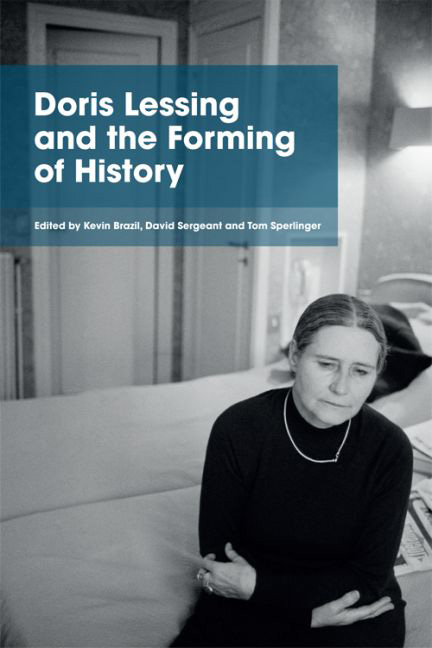Book contents
- Frontmatter
- Contents
- Acknowledgements
- Timeline
- Introduction
- 1 Early Lessing, Commitment, the World
- 2 ‘I'm an adolescent. And that's how I'm going to stay’: Lessing and Youth Culture 1956–1962
- 3 Sequence, Series and Character in Children of Violence
- 4 The Politics of Form: The Golden Notebook and Women's Radical Literary Tradition
- 5 Readers of Fiction and Readers in Fiction: Readership and The Golden Notebook
- 6 From The Grass is Singing to The Golden Notebook: Film, Literature and Psychoanalysis
- 7 ‘funny thing laughter, what's it for?’: Humour and Form in Lessing's Fiction,A
- 8 Lessing and the Scale of Environmental Crisis
- 9 Lessing and Time Travel
- 10 Lessing's Interruptions
- 11 Lessing's Witness Literature
- 12 A Catastrophic Universe: Lessing, Posthumanism and Deep History
- Select Bibliography
- Notes on Contributors
- Index
12 - A Catastrophic Universe: Lessing, Posthumanism and Deep History
Published online by Cambridge University Press: 26 May 2017
- Frontmatter
- Contents
- Acknowledgements
- Timeline
- Introduction
- 1 Early Lessing, Commitment, the World
- 2 ‘I'm an adolescent. And that's how I'm going to stay’: Lessing and Youth Culture 1956–1962
- 3 Sequence, Series and Character in Children of Violence
- 4 The Politics of Form: The Golden Notebook and Women's Radical Literary Tradition
- 5 Readers of Fiction and Readers in Fiction: Readership and The Golden Notebook
- 6 From The Grass is Singing to The Golden Notebook: Film, Literature and Psychoanalysis
- 7 ‘funny thing laughter, what's it for?’: Humour and Form in Lessing's Fiction,A
- 8 Lessing and the Scale of Environmental Crisis
- 9 Lessing and Time Travel
- 10 Lessing's Interruptions
- 11 Lessing's Witness Literature
- 12 A Catastrophic Universe: Lessing, Posthumanism and Deep History
- Select Bibliography
- Notes on Contributors
- Index
Summary
If he wasn't human, what was he? A human animal, she concluded, and then joked with herself, Well, aren't we all? (Ben, in the World, 42)
Human evolution is a major concern of Lessing's fiction from The Four-Gated City (1969) to The Cleft (2007) and this interest is one of the primary motives for her turn to speculative fiction, a genre which allows her to range imaginatively across evolutionary time. Focusing on her later fiction, this chapter argues that in her Canopus in Argos sequence and in fables such as The Fifth Child (1988) Lessing engages presciently with the kind of ‘deep history’ advocated by Dipesh Chakrabarty in his influential discussion of history in the age of the Anthropocene. As the chapters by Adam Guy and David Sergeant earlier in this volume have shown, questions of scale were important to Lessing's career from the beginning, and Chakrabarty's contention that the evidence for anthropogenic climate change requires us to reconfigure the meaning of human history signals another important way in which Lessing engages with this idea. According to Chakrabarty, it demands a change of scale in our thinking, which must now operate at a planetary level, and it unsettles the temporality of historical thought, which must now encompass geological time and the possibility of our own extinction. In addition, because humans have now become a geological force, ‘the time honoured distinction between natural and human histories’ has been destroyed. In consequence, he suggests, there is a need to conceptualise ‘the human’ at the level of the species rather than the individual, despite the fact that the concept of the species invokes a collectivity ‘that escapes our capacity to experience the world’ (222). Although he does not make this point explicitly, Chakrabarty's analysis of the implications of climate change for our understanding of human subjectivity converges with key tenets of posthumanist thought as it has developed over the last two decades. Posthumanism has been seen as a response to climate change and to rapid advances in bio- and info-technologies, developments which seem to point in contradictory directions, either to the ‘end of man’ or to man's self-transcendence.
- Type
- Chapter
- Information
- Doris Lessing and the Forming of History , pp. 164 - 180Publisher: Edinburgh University PressPrint publication year: 2016



